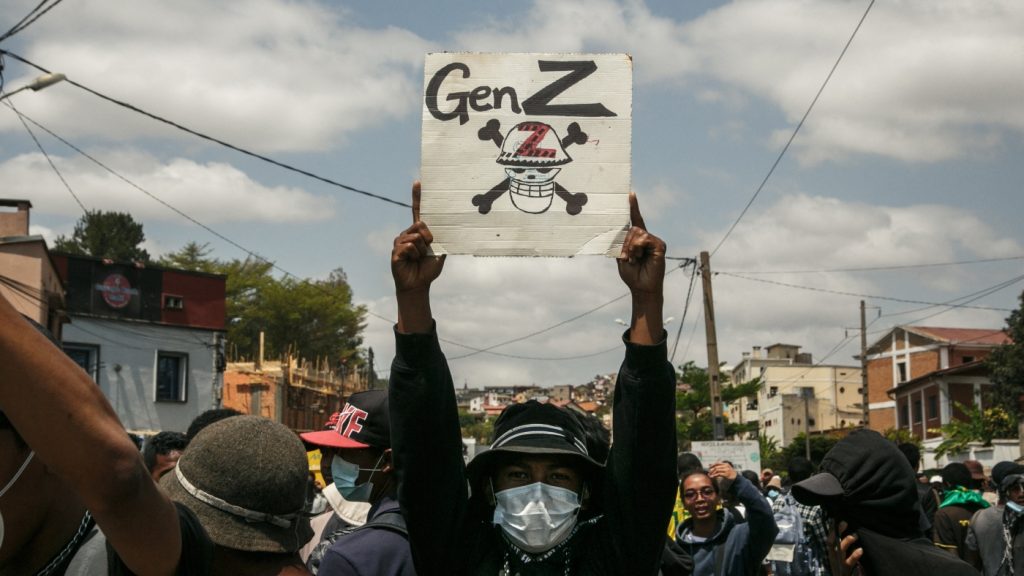Youth-Led Protests Erupt Across Africa
In various regions of Africa, youth-led demonstrations are gaining momentum, driven by members of Generation Z—those under 28 years old—frustrated by prolonged poor governance. Protests have arisen from Madagascar to Morocco, reflecting broader discontent.
Recent protests over chronic water and electricity shortages in Madagascar resulted in President Andry Rajoelina dissolving his government. He acknowledged the public’s suffering, stating, “I heard the call.” However, demonstrators are insisting he resign as well, expressing their displeasure with his leadership, which has seen significant turmoil since a coup in 2009.
One of the protesters, 21-year-old medical student Fanilo from the capital, Antananarivo, noted that the government’s heavy-handed response has only intensified their resolve. “We expressed our frustrations peacefully, yet we faced severe repression without cause,” he explained, fearing retribution for speaking out.
Amidst escalating protests, accounts of violence surfaced, with reports of security forces using tear gas and live ammunition against demonstrators. The UN indicated that at least 22 protesters have died, while witnesses recounted harrowing experiences of brutality.
The frustrations driving these protests are not isolated to Madagascar. Youth across Africa, particularly in countries like Kenya and Togo, are similarly mobilizing against government corruption and inadequate public services. These protests are often organized through social media platforms, where activists have found new tools for communication and coordination.
In Morocco, protesters have engaged in some of the most massive anti-government rallies in years, specifically criticizing government spending priorities ahead of the 2030 FIFA World Cup while neglecting essential services. The protests there are also characterized by a vibrant use of social media to foster collective action.
Analysts emphasize that the youth currently taking to the streets are leveraging technology in ways their predecessors could not. The ability to share information swiftly counteracts government propaganda, showcasing a generation unwilling to accept the status quo of economic challenges and political repression.



